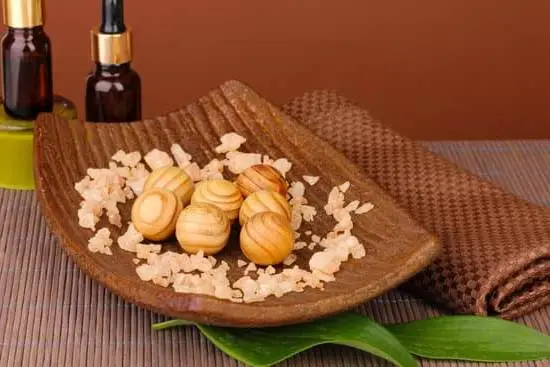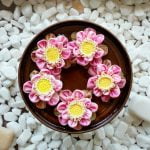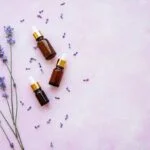Are you feeling overwhelmed by stress and looking for natural ways to find relief? In this article, we will explore how to use aromatherapy for stress relief, a powerful and proven method for promoting relaxation and calm. Aromatherapy has been used for centuries to alleviate stress, anxiety, and tension, and with the right knowledge and essential oils, you can incorporate this practice into your daily routine to help manage stress effectively.
Aromatherapy is a holistic healing treatment that uses natural plant extracts to promote health and well-being. The benefits of aromatherapy for stress relief are vast, as it can help reduce anxiety, improve sleep quality, and enhance overall mood. In this comprehensive guide, we will delve into the power of essential oils in aromatherapy and how they can be used to alleviate stress effectively.
Understanding the different types of essential oils and how they work is crucial in harnessing the full potential of aromatherapy for stress relief. From lavender to chamomile to bergamot, each essential oil possesses unique properties that can influence emotions and promote relaxation.
We will discuss how to choose the right essential oils for stress relief based on their calming properties and therapeutic benefits. So if you’re ready to embark on a journey towards a calmer mind and body using natural remedies, stay tuned for expert tips on incorporating aromatherapy into your daily life for long-term stress management.
Understanding the Power of Essential Oils in Aromatherapy
Aromatherapy is the practice of using essential oils and other aromatic compounds for their therapeutic effects. These oils are extracted from various plants and have been used for centuries to promote physical, emotional, and spiritual well-being. When it comes to stress relief, essential oils can be powerful allies in offering a natural and holistic approach to managing daily anxieties and tension.
How Essential Oils Work
Essential oils are highly concentrated extracts that contain the natural aroma and properties of the plant they are derived from. The molecules in these oils are small enough to be absorbed through the skin or inhaled into the body where they can interact with the limbic system, a part of the brain that plays a role in emotions, behavior, and memory. This interaction can help trigger physiological responses that promote relaxation, reduce stress levels, and improve overall mood.
Benefits of Essential Oils for Stress Relief
Numerous studies have shown that certain essential oils have stress-reducing properties. For example, lavender oil has been found to have calming effects on the nervous system, promoting relaxation and improving sleep quality. Similarly, bergamot oil has been shown to reduce cortisol levels (the hormone associated with stress) when used aromatically, making it an excellent choice for relieving anxiety.
Other essential oils like chamomile, rose, and frankincense also offer stress-relieving benefits and can be incorporated into your aromatherapy routine. Understanding these benefits will guide you in choosing the best essential oils for your stress relief needs.
Quality Matters
When using essential oils for stress relief, it’s crucial to choose high-quality products. Look for pure essential oils from reputable sources to ensure their efficacy and safety. Synthetic fragrances or diluted oils may not provide the same therapeutic benefits and can even cause adverse reactions. To truly harness the power of essential oils for stress relief, prioritize quality over quantity.
Choosing the Right Essential Oils for Stress Relief
When it comes to using aromatherapy for stress relief, choosing the right essential oils is crucial. Essential oils are highly concentrated plant extracts that have been used for centuries for their therapeutic properties. Different essential oils have different effects on the mind and body, so it’s important to select oils that are known for their calming and stress-relieving benefits.
Popular Essential Oils for Stress Relief
Some of the most popular essential oils for stress relief include lavender, chamomile, bergamot, and ylang-ylang. Lavender is well-known for its calming and soothing properties, while chamomile is often used to promote relaxation and reduce anxiety. Bergamot is a citrus oil that can help uplift the mood and reduce feelings of stress, while ylang-ylang is known for its ability to promote a sense of calm and emotional balance.
Personal Preference and Individual Response
It’s also important to consider personal preference when choosing essential oils for stress relief. Everyone responds differently to different scents, so it’s a good idea to experiment with various oils to see which ones resonate with you the most. Some people may find that certain scents have a more profound effect on their mood and stress levels than others.
Mixing and Blending Essential Oils
In some cases, combining different essential oils can create a synergistic blend that enhances their individual benefits. For example, blending lavender with bergamot can create a soothing yet uplifting aroma that helps alleviate stress and anxiety.
Experimenting with different blends can allow you to customize your aromatherapy experience based on your specific needs for stress relief. Learning how to use aromatherapy for stress relief involves not only selecting the right essential oils but also being open to exploring different combinations until you find what works best for you.
Different Ways to Use Aromatherapy for Stress Relief (Diffusers, Inhalation, Massage, Baths, Etc)
Aromatherapy is a natural and effective way to reduce stress and promote relaxation. There are various ways to use aromatherapy for stress relief, each offering its own unique benefits. Here are some different methods you can incorporate into your daily routine:
1. Diffusers: Using an essential oil diffuser is one of the most popular ways to enjoy the benefits of aromatherapy. Simply add a few drops of your chosen essential oil to the water in the diffuser and let it fill the air with a calming aroma.
2. Inhalation: Inhaling essential oils directly from the bottle or by adding a few drops to a cloth or tissue can provide quick stress relief. You can also add a few drops of essential oil to a bowl of hot water and breathe in the steam for a more intense inhalation experience.
3. Massage: Aromatherapy massage combines the benefits of therapeutic touch with the calming effects of essential oils. Dilute your chosen essential oil in a carrier oil, such as sweet almond or coconut oil, and use it during a relaxing massage for ultimate stress relief.
4. Baths: Adding a few drops of essential oil to your bathwater can create a soothing and luxurious experience. The warm water helps release the aroma of the essential oil, providing both physical and emotional relaxation.
These different methods demonstrate how versatile aromatherapy can be when it comes to managing stress effectively.
Remember that when using aromatherapy for stress relief, it’s important to choose high-quality essential oils and follow safety guidelines to ensure maximum benefit without any negative side effects.
Whether you prefer diffusing essential oils throughout your home or enjoying an aromatherapy massage at your favorite spa, there are countless ways to incorporate aromatherapy into your daily life for stress relief.
Aromatherapy Techniques for Relaxation and Calm
Aromatherapy is a powerful tool for relaxation and stress relief, offering natural solutions to promote calmness and well-being. The use of essential oils in aromatherapy can positively impact your mood and emotions, helping to alleviate stress and anxiety. In this section, we will explore different aromatherapy techniques that you can incorporate into your daily routine to promote relaxation and calm.
One popular method is using a diffuser to disperse the scent of essential oils into the air. Inhalation of these aromatic compounds can have a direct impact on the limbic system in the brain, which is responsible for emotions and memories.
Another technique is through massage, where diluted essential oils are applied to the skin, providing both physical and emotional benefits. Taking a bath with a few drops of essential oil added to the water can also be incredibly soothing, creating a spa-like experience in the comfort of your own home.
It’s important to understand that everyone responds differently to aromatherapy, so it may take some experimentation to find the right combination of oils and techniques that work best for you. By incorporating these methods into your daily routine, you can create a sense of tranquility and balance in your life.
| Aromatherapy Technique | Benefits |
|---|---|
| Diffuser | Disperses essential oil scents for inhalation, promoting relaxation |
| Massage | Provides both physical and emotional benefits by applying diluted essential oils to the skin |
| Baths | Adds an aromatic experience creating relaxation in the comfort of your home. |
Creating Your Own Aromatherapy Blends for Stress Relief
Aromatherapy is a popular and effective way to reduce stress and promote relaxation. One of the best things about aromatherapy is that you can create your own blends of essential oils tailored to your specific needs, preferences, and moods. By doing so, you can enhance the overall experience of using aromatherapy for stress relief.
When creating your own aromatherapy blends for stress relief, it’s important to start with high-quality essential oils. Some of the most commonly used essential oils for stress relief include lavender, chamomile, bergamot, frankincense, and ylang-ylang. These essential oils are known for their calming and relaxing properties.
Once you have chosen the essential oils you want to use, you can create your blend by mixing a few drops of each oil together in a small bottle or diffuser. It’s important to dilute the essential oils with a carrier oil like jojoba or coconut oil if you plan to apply the blend directly to your skin.
Experiment with different combinations and ratios of essential oils until you find a blend that resonates with you and provides the desired stress-relieving effects.
Incorporating aromatherapy into your daily routine is a wonderful way to manage stress in the long term. Whether it’s through using a diffuser in your home or office, adding a few drops of essential oil to your bath, or enjoying a relaxing massage with an aromatherapy blend, there are numerous ways to integrate aromatherapy into your lifestyle for ongoing stress management.
| Ways to Use Aromatherapy | Description |
|---|---|
| Diffusers | A common method which involves dispersing essential oils into the air through evaporation. |
| Inhalation | Inhaling essential oils directly from the bottle or by adding a few drops to hot water for steam inhalation. |
| Massage | Diluting essential oils in carrier oils for use in massages can provide both physical and emotional benefits. |
| Baths | Adding a few drops of essential oil diluted in a carrier oil or milk into warm bath water can be incredibly soothing. |
Safety Precautions and Tips for Using Aromatherapy
Aromatherapy is a popular and effective way to manage stress and promote relaxation. However, it’s important to use essential oils safely to avoid any adverse reactions. Here are some safety precautions and tips for using aromatherapy for stress relief:
- Always dilute essential oils: Essential oils are highly concentrated and should never be applied directly to the skin without being diluted with a carrier oil. This helps reduce the risk of skin irritation or sensitization.
- Patch test before use: Before using a new essential oil, it’s important to perform a patch test to determine if you have any allergic reactions or sensitivities. Apply a small amount of diluted oil to your skin and wait 24 hours to see if there is any reaction.
- Keep essential oils out of reach of children and pets: Some essential oils can be toxic if ingested, so it’s important to store them in a safe place away from curious hands and paws.
In addition to these safety precautions, there are also some general tips for using aromatherapy for stress relief:
- Experiment with different essential oils: Everyone responds differently to different scents, so try out a few different essential oils to find the ones that work best for you in reducing stress and promoting relaxation.
- Use aromatherapy throughout the day: Incorporating aromatherapy into your daily routine can help manage stress in the long term. Whether it’s through diffusers, inhalation, massage, or baths, finding ways to consistently use aromatherapy can have lasting benefits for stress relief.
- Seek professional guidance if needed: If you have any underlying health conditions or concerns about using essential oils, it’s always best to seek advice from a qualified aromatherapist or healthcare professional to ensure safe and effective use of aromatherapy for stress relief.
By following these safety precautions and tips, you can effectively use aromatherapy for stress relief while minimizing any potential risks. Remember that everyone’s experience with essential oils may vary, so it’s important to listen to your body and adjust your usage as needed.
Incorporating Aromatherapy Into Your Daily Routine for Long-Term Stress Management
Incorporating aromatherapy into your daily routine can be a game changer when it comes to long-term stress management. By making aromatherapy a regular part of your day, you can experience ongoing benefits for your mental and emotional well-being.
Whether it’s through diffusing essential oils in the morning, using them in a calming bath at night, or simply taking a moment to inhale the soothing aroma during the day, there are many ways to integrate aromatherapy into your life.
One effective way to use aromatherapy for stress relief is by creating a personalized blend of essential oils that works best for you. Experimenting with different combinations and finding what brings you the most relaxation and calm can be a fun and empowering process. Additionally, incorporating aromatherapy techniques such as massage or inhalation can provide immediate relief from stress and anxiety, helping you to feel more grounded and centered throughout the day.
It’s important to remember that when using aromatherapy for stress relief, safety precautions should be taken into account. Always dilute essential oils properly before applying them to the skin, and be mindful of any potential allergic reactions.
By being informed about how to use aromatherapy for stress relief safely, you can fully enjoy its benefits without any negative side effects. Incorporating these practices into your daily routine can ultimately lead to better long-term stress management and an overall improved sense of well-being.
Frequently Asked Questions
Where Do I Apply Essential Oils for Stress and Anxiety?
Essential oils can be applied for stress and anxiety by massaging them onto the skin, adding a few drops to a warm bath, using a diffuser, or inhaling directly from the bottle. Common locations for application include the wrists, temples, and soles of the feet.
What Are the Techniques for Stress Relief?
There are various techniques for stress relief that can help manage and reduce feelings of anxiety. These include deep breathing exercises, practicing mindfulness or meditation, engaging in physical activity such as yoga or walking, seeking social support through talking with friends or loved ones, and getting enough sleep.
Does Aromatherapy Stress Relief Really Work?
Aromatherapy stress relief is believed to work by stimulating smell receptors in the nose which then send messages to the part of the brain that controls emotions. While research on aromatherapy is limited, some studies have shown that certain essential oils may help reduce feelings of stress and anxiety when used in conjunction with other stress-relief techniques.
However, individual responses to aromatherapy can vary.

Are you looking for a natural way to improve your health and wellbeing?
If so, aromatherapy may be the answer for you.





